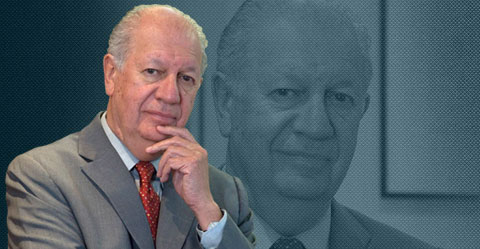Latin America is at a watershed. Today, democracy is well-established and independent monetary policies with a certain degree of open markets as part of a globalized system are the norm. Throughout the region, the rule of law is taken for granted, as are property and social rights.
We have taken a step forward, mainly as a result of the work we have undertaken. For the first time in decades we can say to the world that we, as Latin Americans, are not responsible for a global economic crisis. And of course, we’ve learned something from our long history of local economic crises. In the twenty-first century we have worked to create solid, stable financial systems and to implement well-focused social policies that have allowed us to reduce the rate of poverty—from 43.4% in 2002 to 27.9% in 2013—and to integrate emerging sectors into our society.
In Chile, for example, thanks to the Chile Solidario program, since 2004 people have been able to count on a social support system that provides various different subsidies, including programs that provide money for drinking water and schooling, that have allowed them to escape from extreme poverty. Today, their children are part of a movement that is seeking to establish free, public, quality education.
During this new cycle, in which one paradigm is ending and another is beginning, the challenge is to incorporate and respond to the needs of these sectors whose new demands are linked to their improved quality of life. Whenever quality of life has improved to a certain extent, it is always possible to go further. So now we are faced with new tasks: what is required is the creation of a society in which no matter where you are born, you are assured of equality of opportunity, so that everyone can find a place for themselves that is suited to their abilities.
A long term outlook and political will are fundamental in this new cycle. Structural reforms are needed to the tax and education systems so as to implement models that make it possible to respond to the demands of these groups and thus progress with development, on the understanding that the project for the country is bigger than just administration. Countries are created step by step, building on the work of our predecessors and trusting that our successors will have greater opportunity for action.
The real challenge is to make the transformation from a state of law to a state of guarantees. To govern is to walk the thin line between redistribution in order to share the growth of the economy with those who need it most and set the amount of investment required to ensure that the growth will continue in the future. We have learned our lessons, the important point is to have the will to apply them, to establish a consensus, look to the long term and work to create a Latin America in which our grandchildren can enjoy free and effective public healthcare, free, quality education and sustainable development.
Leave a comment



